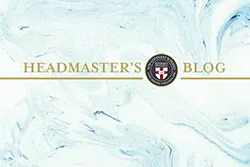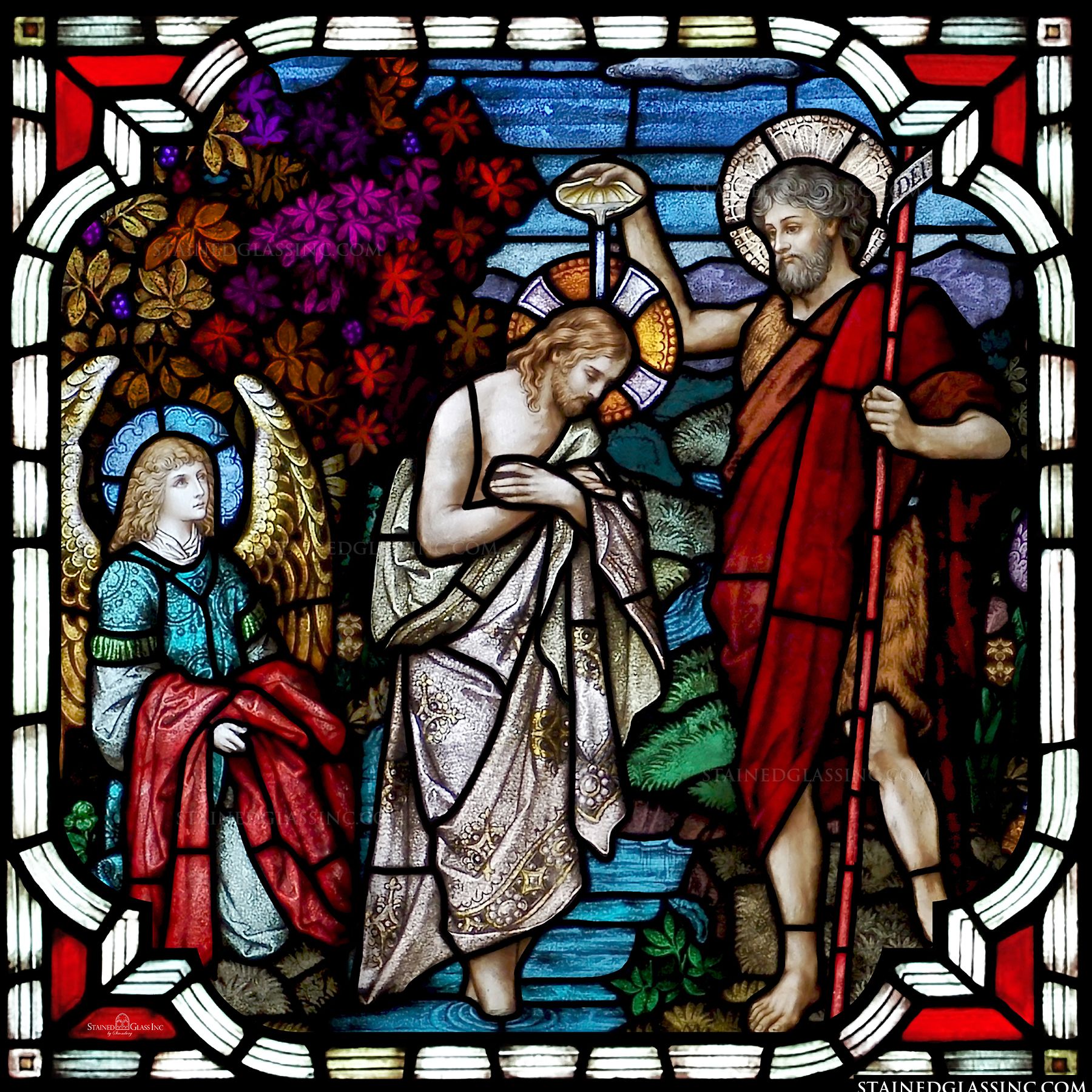The Epistle: Romans 12: 6-16
The Gospel: St. Mark 1:1-11
The collect: Almighty and everlasting God, who dost govern all things in heaven and earth; Mercifully hear the supplications of thy people and grant us thy peace all the days of our life; through Jesus Christ our Lord. Amen
The baptism of Jesus is recognized as one “epiphany” during the season of the same name. The word is a transliteration, that is, a letter for letter rendering of the Greek word that means “manifestation” or “revealing.” The event is an epiphany because the baptism of Jesus is attended by two things, the spirit, descending upon him in the form of a dove, and a voice from heaven declaring that he is a well-pleasing son.
But let’s back up. Why is Jesus being baptized in the first place? It’s natural for every faith tradition to read its own theology back into this event. This approach is problematic because in all Christian understandings of baptism – there are many, and I won’t list them – the matter of the forgiveness of sins in some sense is present.
John himself seems aware of this when he questions Jesus as to why he is asking for baptism. He seems to know intuitively that Jesus has no sin of which to repent or confess. The response given is, “It is necessary to fulfill all righteousness.” That’s a curious phrase but it’s not far from our own understanding of baptism which assumes human sin and our need for such to be washed away. Righteousness as Jesus intends for us to understand it, involves full obedience to law. Fulfilling righteousness, therefore, means to adjudicate or make a judgment regarding one’s relationship to the law. In short, is one a sinner or not? If, say, one was found to be in full compliance with God’s law, one would have no sins to confess and would have further claim to full sonship in relationship to God.
This is, in fact, what happens moments after John baptizes Jesus. An epiphany occurs. The spirit of God is visibly poured out in the form of a dove and an audible declaration of his sonship is announced. Thus, while Jesus has no sin for which repentance is necessary, it remains that his baptism still entails the impartation of the Holy Spirit and the pronouncement of sonship.
I would suggest that Jesus’ baptism is the paradigm for all Christian baptism. In baptism, St. Paul affirms that we are united to him in his death, so that “our old self was crucified with him in order that the body of sin might be brought to nothing, so that we would no longer be enslaved to sin” (Romans 6:6). This language is taken from the Exodus story in which the Hebrews moved from real, historical enslavement in Egypt, but were recognized by God with the words, “Israel is my son.” (Exodus 4.22-23).
Two things happen in Christian baptism. First, the guilt of original sin is washed away, and we are received into the Church as full sons of God. This is exactly what we acknowledge in the baptismal liturgy when we pray, “We…give thanks unto thee, O Lord…for that thy dearly beloved Son Jesus Christ, for the forgiveness of our sins, did shed out of his most precious side both water and blood; and gave commandment to his disciples, that they should go teach all nations, and baptize them In the Name of the Father, and of the Son, and of the Holy Ghost. Regard, we beseech thee, the supplications of thy congregation; sanctify this Water to the mystical washing away of sin; and grant that this Child (this thy Servant), now to be baptized therein, may receive the fulness of thy grace, and ever remain in the number of thy faithful children…”
In this short prayer (and everywhere else in the baptismal liturgy) the twin themes of the forgiveness of sin and the declaration of being a child of God are present. Thus, while the baptism of Jesus is unique in that he was sinless, nevertheless it is the moment at which he is recognized as God’s son. Christian baptism accomplishes both.
There is one final thing to note. The descent of the spirit as a dove should be recognized as something we have seen before. In the first creation the spirit of God hovered or brooded (like a bird) over the face of the waters until the creation was brought forth. In the same way, Noah sent a dove to fly over the face of the waters after the great flood, from which a new earth emerged. Thus, in this final scene, the dove comes to rest over Jesus as he comes “out of the water,” signifying that he is the new creation. So Paul again affirms that, “if anyone be in Christ, he is a new creation” (2 Cor. 5:17).
This is what baptism means.





























